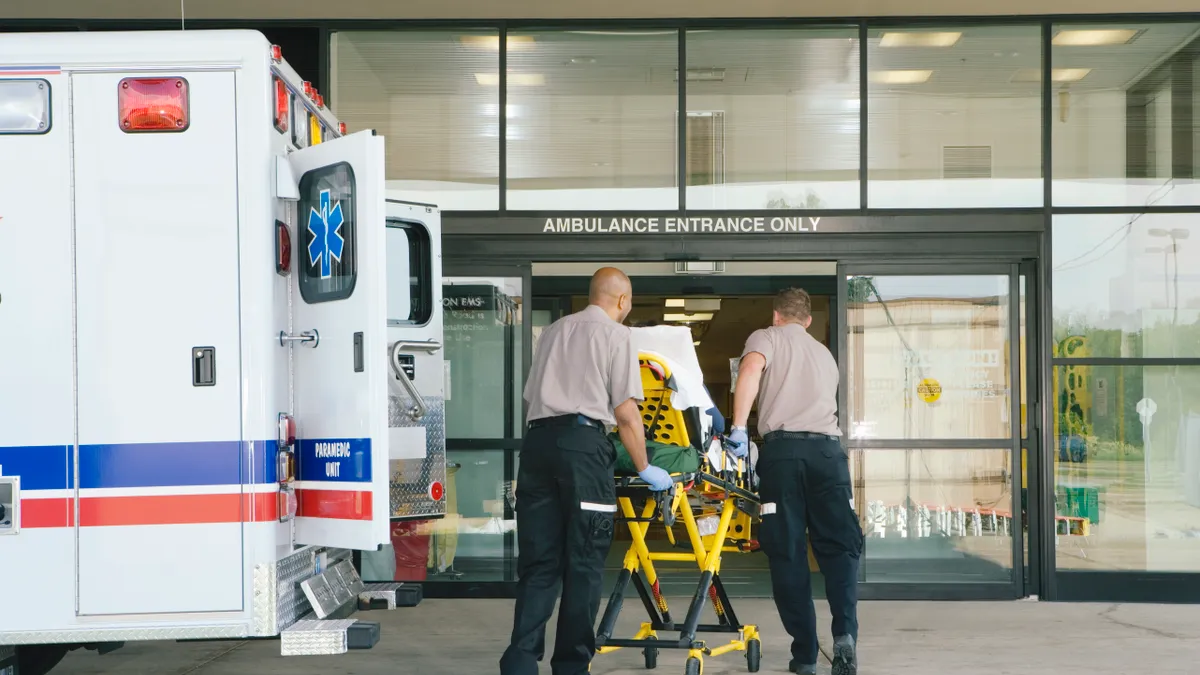Dive Brief:
- Group purchasing organizations (GPOs) are playing more diverse roles than just that of purchasing partners, according to the Healthcare Supply Chain Association's annual report released last week, including preparing for and reacting to disasters such as hurricanes, mass shootings, and wildfires.
- The membership organization of 16 GPOs representing roughly 7,000 hospitals and treatment centers said the purchasing power of these organizations has reached approximately $210 million — a self-reported sales volume from HSCA members.
- The report lists cybersecurity, managing drug utilization, value-based payment models as other areas where GPOs can add value beyond simple savings.
Dive Insight:
The value of GPOs goes beyond the strictly financial, according to the new report.
After Hurricanes Harvey and Irma, GPOs acted as extra capacity to orchestrate the movement of fresh supplies to hospitals in affected areas. They also played a role in responding to the most recent Ebola outbreak, pharmaceutical shortages resulting from Hurricane Maria's damage in Puerto Rico's manufacturing sector, and California wildfires.
"Every GPO has become more adept, more actively engaged, more proficient in working with their customers and identifying what they may need and responding as appropriate to disasters," Ebert told Supply Chain Dive. "That's something that I think GPOs continue to get better at, unfortunately, because of experience," he said.
Ebert explained it is increasingly common practice that GPOs work with hospitals in advance of a predicted weather event to increase crucial supplies, coordinating with manufacturers and distributors to expedite orders and plan contingencies. With hurricane season just kicking off, the initial work is starting now in potentially affected areas. The report notes one GPO even has a dedicated "disaster response team."
Beyond hurricanes, GPOs are serving as off-site staff in some extreme non-weather related disasters such as the mass shooting in Las Vegas in 2017.
The HCSA reports the overall purchasing power of GPOs is growing, despite a downward adjustment in the number of institutions served by the organization's 16 members. That purchasing power helps save hospitals and other healthcare institutions on costs: HSCA members save their customers from 10% to 18% across most expense categories, for a value of $392.2 billion to $864.4 billion of savings over the ten-year period of 2013 to 2022.
Despite proven cost savings, however, GPOs are also not without their critics. Rob Austin, director and healthcare expert at Navigant, told Supply Chain Dive last month GPOs require fees and "add another layer of administrative overhead," to hospital operations. Some health systems, in search of streamlined operations, form their own smaller, regional GPOs, as Modern Healthcare reported this year.














